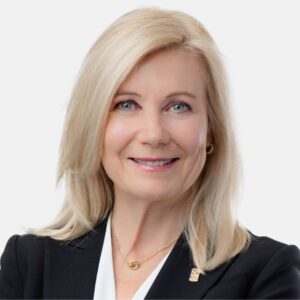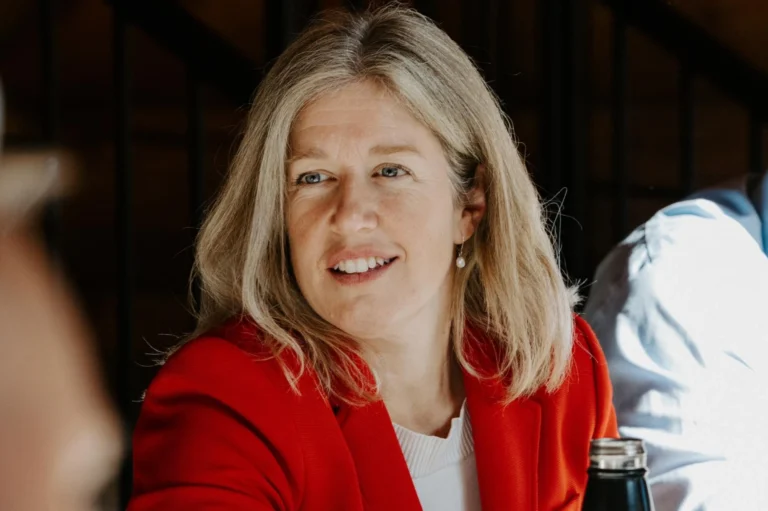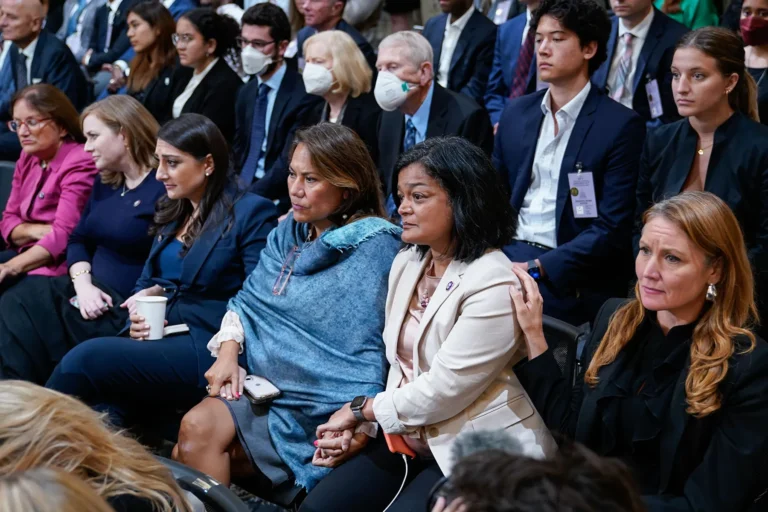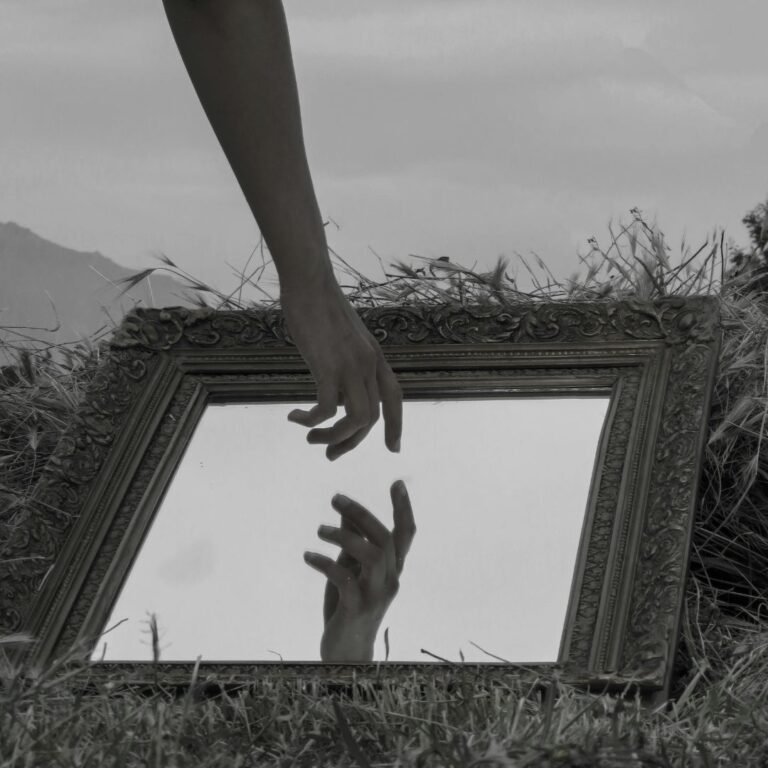Christina Cleveland – RBC’s Vice President of Diversity & Inclusion
Christina Cleveland is RBC’s Vice President of Diversity & Inclusion. At a time when D&I discussions are top of mind for businesses, governments, institutions, and individuals across the country and around the world, she shares various perspectives on the importance of why everyone needs to speak up for inclusion.
Note: This transcript has been edited for clarity and length.
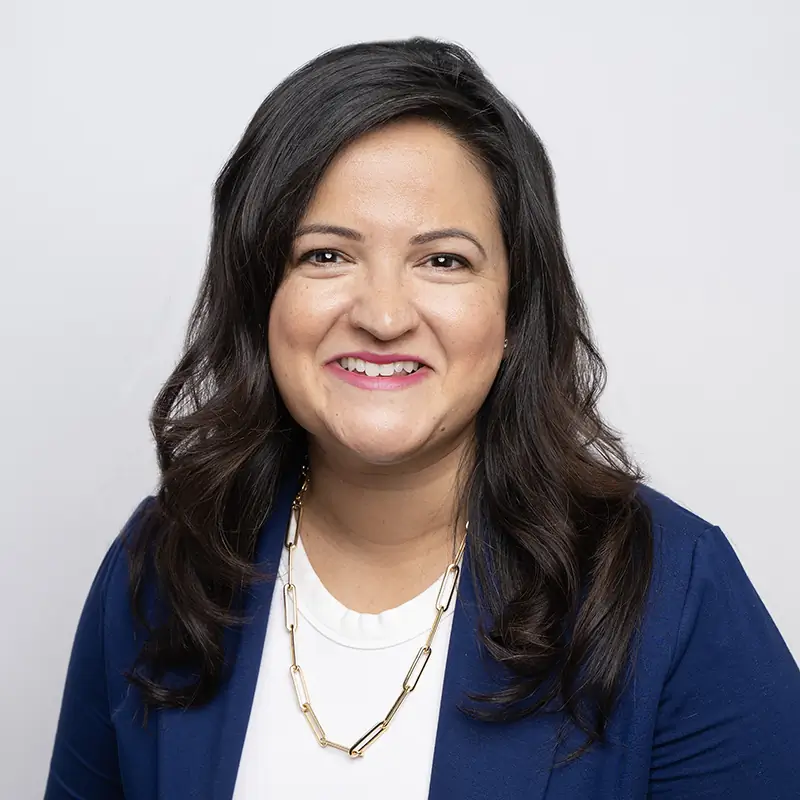
Catherine Clark: Your job means that at this pretty crucial time in global history, you’re a part of rethinking and rebuilding modern corporate culture and, frankly, how we work. Can you talk to us about what excites you the most about your job right now?
Christina Cleveland: I really do believe in helping people be the best version of themselves. And when I think about that in the context of DI and the opportunity that I have in my current role, it’s about looking at opportunities and ways that we can create safe spaces where people can bring forward their true and authentic selves, and where they have an opportunity to unlock even more of their potential. Sometimes that could mean removing perceived barriers in the environment, creating more accessible and inclusive environments. But it also means looking at things differently, interrupting biases in our thinking, challenging ourselves to expand and grow, and connecting differently.
Jennifer Stewart: A lot of progress has been made. But there’s still so much work to be done. What challenges keep you up at night?
Christina Cleveland: One of the things that worries me is this heightened degree of polarization in our society. We’ve somehow lost the opportunity to be able to embrace healthy debate and conflict and that diverse perspectives and points of view are actually what helped us get richer as a society and create opportunity to have more engaging dialogue and conversation. We’re less able to productively disagree. But diverse views help us challenge each other. And they help us think about problems differently. I want to think about ways to take the temperature down and open up the opportunity for us to just once again embrace healthy dialogue, debate, and productive conflict.
One of the things that worries me is this heightened degree of polarization in our society. I want to think about ways to take the temperature down and open up the opportunity for us to just once again embrace healthy dialogue, debate, and productive conflict.
Christina Cleveland
Catherine Clark: It is really one of the questions of the age we’re in. How do you create a safe space within a major corporate culture to allow people to feel comfortable enough to ask questions and speak up and become a meaningful part of the conversation at a time when things are so polarized?
Christina Cleveland: That is the very challenge and opportunity that we have. When we are learning something new, when we’re navigating into a territory that we’re unfamiliar with, there needs to be a degree of forgiveness, kind of compassion and understanding and support for each other as we navigate into that space.
For us at RBC, creating safe spaces is definitely about trying to facilitate more neutral territory and ground where it becomes very much a habit, in terms of how we actually engage and draw out diverse viewpoints, and how we continue to reinforce that behaviour.
Christina Cleveland
Jennifer Stewart: I’m going to take it back to your childhood so we can understand where you’ve gained this insight and this wisdom in this perspective. From what I understand, your early years were spent living in a very diverse and inclusive community, and then things changed pretty dramatically. And you faced racism and bullying in a new neighbourhood. Can you tell us about how that dual experience impacted you personally and made you the person you are today?
Christina Cleveland: I do think that it helped to shape my perspective and outlook. The contrast in the experiences when we were in this more diverse and inclusive community, into moving into an area where there was less representation and less degrees of inclusion, that stark contrast was my first experience of how cold the world could be. It was lonely, certainly hurtful. It forced me to push down unique aspects of my own identity and cover up parts of myself and my heritage that now later in life, I certainly regret not honouring who I really was.
But I can reflect now and think mostly about the impact of my mother who is of Indo-Caribbean descent. She was from Trinidad. I think certainly both of my parents faced racism, but my mom in particular faced unique challenges and feelings of isolation. My dad, I always say, was the first feminist I ever knew. He was the first anti-racist person I ever knew as well, because he made such an intentional effort to actively include and bring people in. And my mother echoed that behaviour as well.
My mom did prepare me for a world that might not be as accepting of me, as a young girl as a biracial individual.
Christina Cleveland
She pushed my sister and me for high degrees of achievement; she pushed us to understand that we were probably going to have to work a little harder, push a little more, to be able to continue to advance in our kind of careers and life.

Jennifer Stewart: Is one of the reasons for what you do to honour your parents and the bravery that they exhibited throughout your childhood?
Christina Cleveland: I think it’s definitely one of the guiding principles. The core values that they instilled in me growing up, I wouldn’t say it necessarily drove me to this role, specifically, but it lives on in me in this role, for sure. Because this is all about improving experiences for individuals across our organization and helping people to be the best version of themselves. I definitely think that the experiences that I had give me a higher degree of empathy and compassion for what people may feel like if they are feeling excluded, if they are feeling like there is bias in their environment, if they are worried about saying or doing the wrong thing.
Catherine Clark: The whole journey of your life has been about establishing core values. What are your core values?
Christina Cleveland: I think the foundation principle is to just be kind because you never know what someone else is going through. I think the notion of resilience is another one. And that you can do hard things. You will experience tough moments in your life and you will navigate them and you will get through them. I think for women in particular, a vision is prescribed for us about where we should be navigating in our lives, and what those key milestones are going to be, what ages you should be at the time that you engage in those milestones. And I think letting go of those unrealistic expectations, and not resisting the flow of where life may take me has been another opportunity for me just in terms of how I’ve navigated in my life.
I think the foundation principle is to just be kind because you never know what someone else is going through
Christina Cleveland
Jennifer Stewart: Speaking of women, the pandemic has highlighted that many people, especially women, are looking for a new way of working which focuses on flexibility and also incorporates well-being and mental health. On the flip side, you’ve got others contributing to the conversation that are saying, if we move away from how we’ve traditionally done work, we’re going to negatively impact productivity and performance and results. What’s your thinking on this conversation that’s taking place right now?
Christina Cleveland: I think it’s fascinating. I agree flexibility is a core part of what all employees are looking for, especially women in the workplace. And it’s something that organizations need to be able to facilitate. I think when we consider the balance that employees are looking for in that degree of flexibility, that’s why the workplace does need to shift. I know for me, I might need to work from home during the day, and when I’m at home, I can toss in a little laundry, I can get dinner in the oven, I can take my son to and from his hockey game, where necessary, but I’m also still highly engaged in my work, I’m still contributing, and it doesn’t necessarily have to be within that traditional notion of nine to five physically in the office.
That said, I also think the connections that we gained from being physically in the office are really important because you have a chance to have those relationships and those casual conversations with other individuals who are experiencing some of these life situations too, and you don’t get that always from the online meetings. So I think this notion of flexibility is critically important. But I also think showing care and compassion for all of the individuals that you’re partnering with and recognizing, that people may be carrying different burdens, that we need to be mindful of the flexibility gives them the opportunity to sort of make it their own.
Catherine Clark: To go back to what you said about not resisting the flow of where life is taking you, I think as women we do spend so much of our time and emotional energy trying to plan, trying to fix, trying to arrange, trying to organize. Can you talk about how you personally have worked to not resist the flow?
Christina Cleveland: I think it’s been from getting bumped around a bit in life and not having things go according to that plan. For example, the idea that I should have been at a certain point in my career by a certain age. Why didn’t I hit that milestone? I went through a divorce, which was a really difficult emotional experience to navigate. It felt like a strike against me, then having to go back into the dating pool. I was already behind and my childbearing years were moving on.
While releasing and coming out of that marriage was very difficult, that actually put me on a path that led me to my now-husband and led me to my now-family and led me to a different career that I wouldn’t have otherwise experienced. But you can’t see that at the time. You cannot see how something difficult, something that’s let you down, something that you haven’t been able to move forward with, is actually putting you on a path to something else. It is difficult to release control of that. But if I had life advice for myself in my younger years, I would have told myself not to waste that emotional energy because things are going to come together. And you can’t even envision it yet.
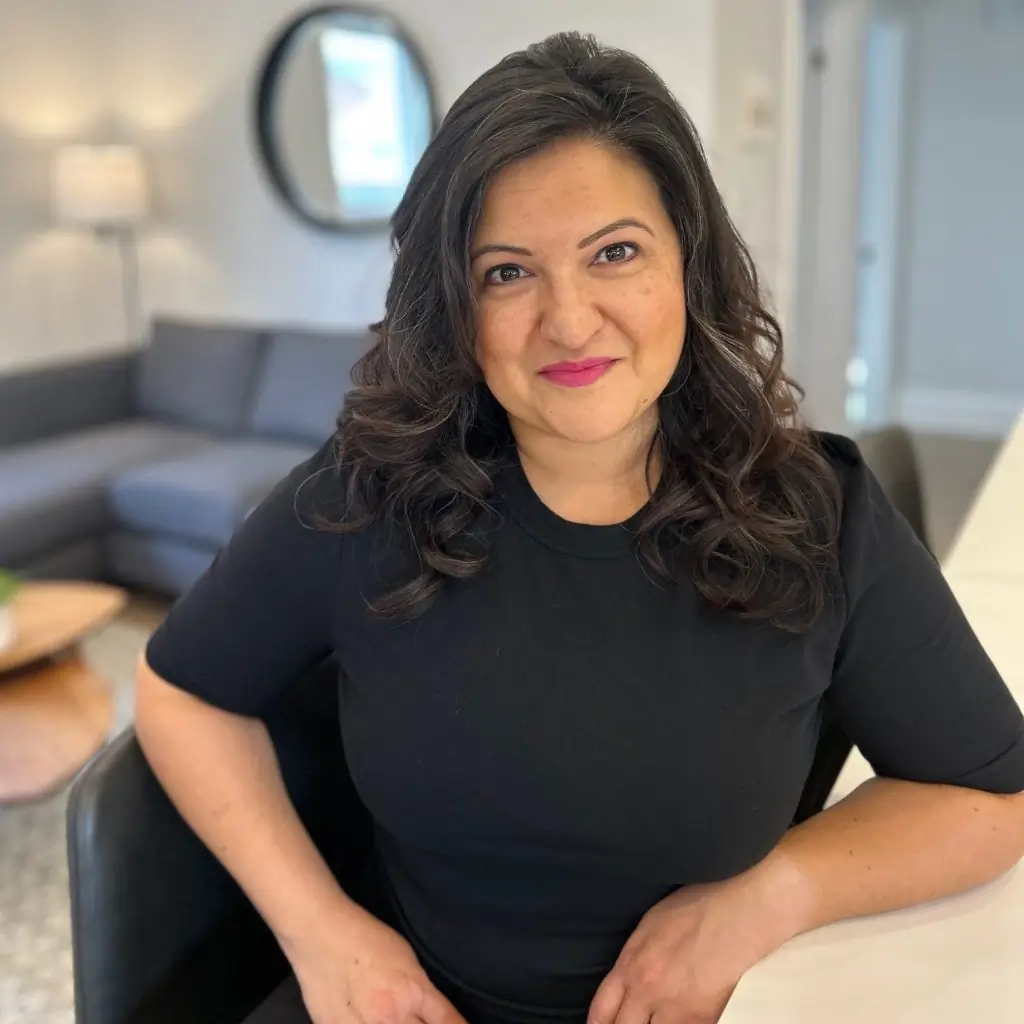
Jennifer Stewart: I find it so interesting how we as women frame those experiences. We put such pressure on ourselves, rather than reframing it as that wasn’t the marriage for me, or I wasn’t having children when society expected me to.
Christina Cleveland: It is those societal norms, this expectation you go through post-secondary education, you get a job, then you get married, you have a child, you maybe have another child. It’s just all of these milestones and connections that are laid out for us. And if my sister who is older than me navigated her way through those milestones, then you have this degree of comparison. But then the question is, who’s actually comparing us? Are people comparing us in some cultures and families? Yes, there is a bit of a comparison that may happen. And in other contexts, perhaps not.
Jennifer Stewart: I was sitting beside the wife of an Ambassador at an event, and she was very impressive, and formerly a principal at a private school for girls. And she was reflecting on the fact that she would always tell the girls that you can have it all, you just have to work hard. And she said to me: “Now, Jen, I really regret saying that as I get older, because I think as women we can achieve a lot, but we put such pressure on women.” I’m just curious about your thoughts on that.
Christina Cleveland: The reference to you can have it all gets me all fired up. Because I think that it’s a false notion. I think the definition of “all” shifts at various points in your life. It shifts week to week. It might shift a couple of times in your day. Even this notion of balance, like having work-life balance. I would agree that “you should be able to have it all” does put pressure on women in particular, because then you feel like if you’re not achieving that, you’re doing something wrong.
Catherine Clark: Just as we wrap up, we would love to hear the best advice you’ve received and the advice that you always try to give to others.
Christina Cleveland: One of the best pieces of advice I received was to define what I stand for. I think defining that guiding principle about what you stand for helps you stay focused and authentic to your true self. When I think about advice that I may have for other women, I feel like one guiding principle is just to try and find a little bit of me time every day, a non-negotiable 10-minute block of time for you to focus on self-care. And that could be meditation, that could be just time to think, that could be that you just want to sit and be with your thoughts, and a cup of coffee or a glass of whatever. But just carving out that time for reflection, to either think forward in your day, or to have an opportunity to pause and look back on your day. That’s the moment where you can reflect on whether or not you’ve actually lived to your true and authentic self, and allows you to reset for the next day or the day ahead. We go to the dentist and we get our teeth checked. We go for our checkups, we go get our oil change, but how often do we actually check in with ourselves and our emotions and our feelings?


